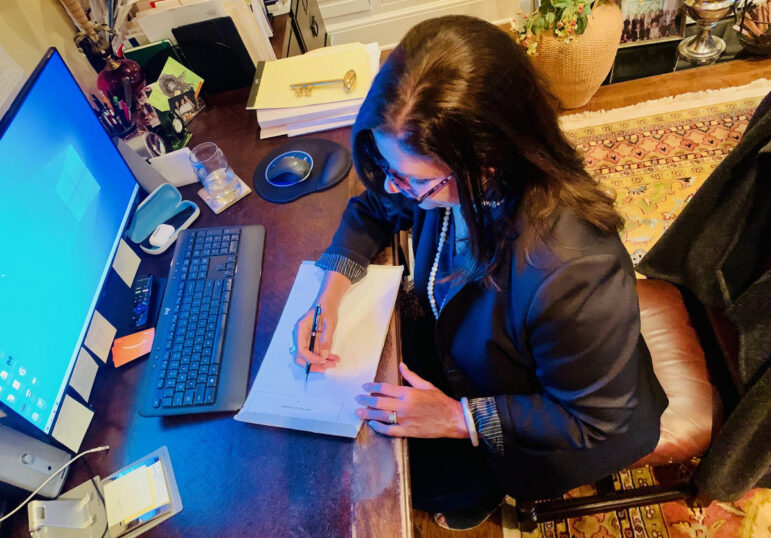Written by Alessandra M. Messineo Long, Esq.
Will you or the state decide? Why it is imperative to have a will no matter what your age.
I am a mom of three amazing children and an attorney with a specialty in estate planning. When I’m talking to other moms, we spend most of our time talking about – what else – our wonderful children. True, over the past year, the subjects of our conversations have switched from sports teams and dance class to best Ikea desks for homeschooling and how to keep our kids from going crazy without their friends.

On many occasions, though, after a pause and with a touch of trepidation, I’ve been asked, “Do you think I need a will?” For me, that is a valid question to ask anytime, but especially during this very real global crisis when the worst can happen to anyone, no matter their age or situation. Since it is a topic shrouded in some mystery and misunderstanding, I would like to shed a little light on it so you can take the steps necessary to protect your family.
In a nutshell, a will dictates what will happen to your assets (referred to as your “estate”) when you die. If you don’t have a will, then you die “intestate,” and the probate court will apply the relevant state laws to determine what happens to your property. The court also decides who will care for any minor children or other dependents and the related costs that must be paid.
Shocking, isn’t it? I have practiced law for some time now and have yet to meet anyone who thinks that the state knows best when it comes to the disposition of their property, and certainly not the care of their children! It is far better that you make those decisions yourself and have a will dictating your wishes. In that case, all the court needs to do is carry out your directives.
Many people mistakenly believe that a will is only necessary for the very wealthy or aged. I advise my clients to have a will prepared when certain life events have occurred: (1) a change in marital status, (2) the purchase of a home, and (3) becoming a parent. And even if none of these applies, if you have amassed or inherited assets, own a business, or want to provide for a beloved pet, you may also need a will.
In addition to specifying who gets what, a will designates your executor, trustee, and for those with minor children, a guardian. Your executor will determine the assets and liabilities of your estate, settle the affairs of the estate (paying any debts, for example), and distribute your property to your designated beneficiaries. Your trustee will manage any assets placed in a trust (usually a trust created through a provision in the will for a minor or tax planning purposes), and the guardian will be responsible for the care of your children.
If you have a will, you get to choose who assumes these significant roles. If you do not have a will, then the court will decide for you, at (essentially) your expense, which may include appointing a professional trustee (and not someone you know and trust to carry out your intentions concerning your property). Even worse, the state will be involved in determining who will raise your children if there is no surviving parent (who may or may not be the person you think will be best for them). Both can involve a lengthy and sometimes costly process. To me, this is not something any loving and responsible parent wants their child to endure while coping with the loss of their mom or dad.
Another important reason for parents to have a will is to include provisions creating a trust to hold assets for their minor children. Under current state intestacy laws, children can inherit property at the age of 18, which is far too young for most teenagers to handle any significant
assets responsibly. By creating a trust, you can choose how much of the trust assets you want your child to receive and at what age. Trusts are designed to preserve the assets until the age or occurrence that you deem appropriate for distribution. Still, typically they can be invaded for your child’s health, education, and well-being if needed in the meantime.
Although the world is slowly getting back to normal, there is always a risk that our time will end before we are ready. So, if we’re having a chat about returning to in-person schooling and you happen to ask this mom/lawyer if you still need a will, my instinct will be to scream, “YOU’RE A PARENT, OF COURSE, YOU DO!”
But I won’t. It’s been a rough year. So instead, I will calmly encourage you to make an appointment with your attorney as soon as possible. This way, you – and not the court – can decide what will happen to your property and, more importantly, who will lovingly raise your amazing children (almost) as well as you.
With sincere gratitude,
Alessandra, Mom and Attorney